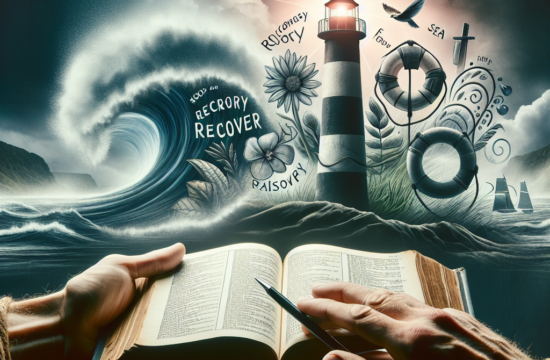==> Thank you for reading this post! Click Here If you are looking for support and Victory over PTSD.
Understanding PTSD and Its Impact on Faith Communities
What is PTSD?
I’ve come across so many people who think PTSD only comes from military experiences or extreme trauma. But the truth is, it can stem from a variety of experiences: loss of a loved one, abuse, accidents, or even intense emotional distress. It’s crucial for anyone, especially within faith communities, to recognize that PTSD is a real and complex mental health issue.
PTSD manifests in various ways, leading to emotional numbness, severe anxiety, and flashbacks. It affects how individuals relate to their faith, often leaving them feeling alienated or questioning their beliefs. We need to embrace this complexity, and as a faith community, we can help each other navigate these tough waters.
By understanding PTSD, we can create a more supportive environment for those in our communities. It lets us see each person as a whole, not just their symptoms. And isn’t that what faith is all about? Caring for one another through our trials and tribulations?
Creating Safe Spaces for Healing
The Importance of Safe Spaces
One of the biggest lessons I’ve learned is the value of safe spaces. They create an environment where individuals feel comfortable expressing their fears and struggles without judgment. It’s about letting people know they can be vulnerable, which is so important for healing, especially regarding PTSD.
Creating these spaces means setting aside time during gatherings for open discussions or simply for people to share their journeys. It might feel a little awkward at first, but trust me, the connections that form in those moments are powerful. Community members begin to feel the weight of their burdens lift off their shoulders.
A supportive environment encourages honesty and openness. When individuals feel safe, they can confront their pain and start their healing journeys. It’s all about respect, love, and a shared commitment to help one another grow.
Training Faith Leaders in Trauma-Informed Care
Why Faith Leaders Matter
Faith leaders play a vital role in offering guidance and support to their communities. However, without proper training in trauma-informed care, they may unintentionally rely on outdated approaches that can hurt individuals coping with PTSD. That’s why ongoing training is essential.
Let’s face it, we all need to keep learning, right? Workshops on mental health first aid or trauma-informed practices equip leaders with the tools they need to support community members effectively. It empowers them to listen actively and provide guidance that acknowledges the individual’s experiences and emotions.
When faith leaders have this knowledge, they can be a beacon of hope and understanding. They can encourage healing rather than inadvertently contribute to feelings of shame or isolation. And when leaders are well-equipped, the ripple effect benefits the entire community.
Promoting Mental Health Awareness Within the Community
The Role of Open Conversations
Let’s get real: mental health is often still stigmatized, especially in faith communities. By promoting open conversations about PTSD and other mental health issues, we break down barriers and encourage healing. It starts with us being willing to chat about it.
Get Support and Help with Recovery! Visit us for more Information and Support
Organizing events or workshops focused on mental health awareness can help normalize these discussions. Sharing personal stories or inviting mental health professionals to speak can provide perspectives that resonate with the community. We need to foster an environment where it’s okay to be not okay.
When we create a culture of transparency around mental health, it can embolden individuals to seek help. They’ll feel empowered to reach out for guidance and support, knowing their community has their back.
Building Support Networks for Ritual and Recovery
The Power of Community Support
One of the most beautiful aspects of faith communities is the incredible support networks they can provide. When someone is struggling with PTSD, being surrounded by compassionate individuals can make all the difference. Support goes beyond mere words; it’s about consistent, tangible actions.
Developing small groups focused on shared experiences can create bonds that speed up the healing process. These groups can provide a mix of ritual and community, reinforcing connections among participants while allowing them space to express their feelings. It’s like building your own little family within the larger community.
Additionally, pairing individuals going through similar struggles can offer companionship and understanding that’s hard to find elsewhere. When you know someone walks the same path, it makes that journey feel a lot less lonely.
Frequently Asked Questions
What is PTSD?
PTSD, or Post-Traumatic Stress Disorder, is a mental health condition that may occur after experiencing or witnessing a traumatic event. Symptoms often include flashbacks, anxiety, and emotional numbness.
How can faith communities help those with PTSD?
Faith communities can create safe spaces, offer training for leaders, promote mental health awareness, and build supportive networks that foster healing and recovery.
Why is mental health awareness important in faith communities?
Mental health awareness helps combat stigma and encourages individuals to seek help and support, leading to a healthier community overall.
What does trauma-informed care entail?
Trauma-informed care involves understanding, recognizing, and responding to the effects of trauma. It seeks to avoid re-traumatization and promote healing and recovery.
How can I get involved in supporting individuals with PTSD in my community?
You can get involved by starting or joining support groups, attending mental health workshops, training in trauma-informed care, and simply being there for someone who needs to talk.












